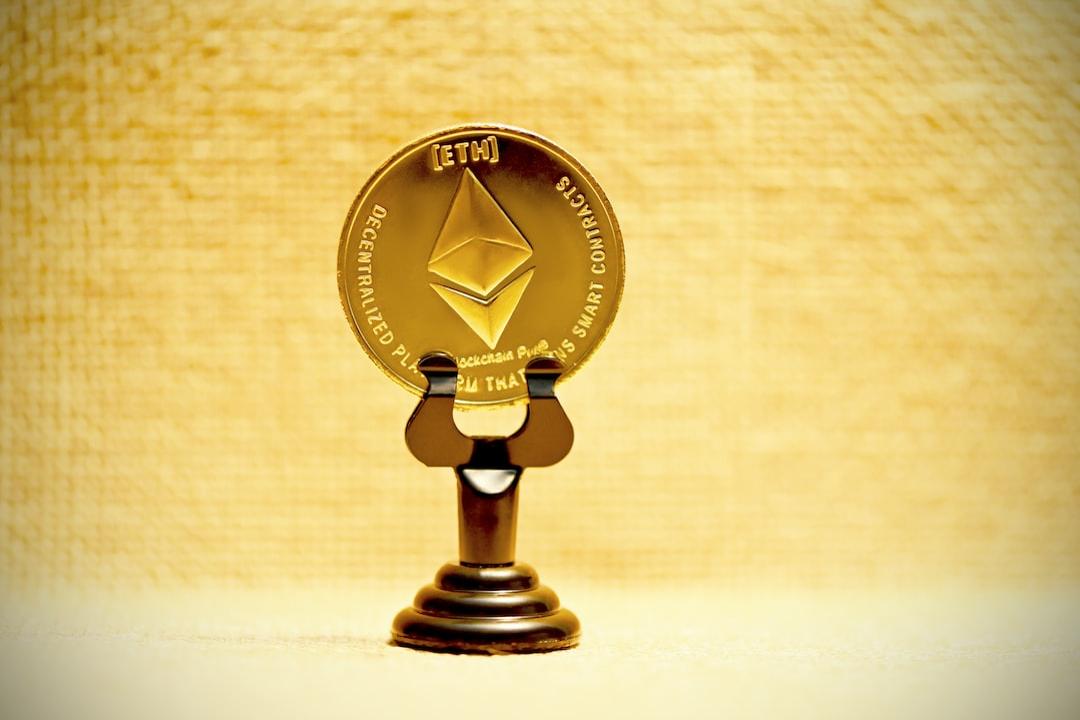Taiwan’s Top Economists and Financial Masters Analyze Bitcoin — Should Bitcoin Be Included in Foreign Exchange Reserves? Is Bitcoin Disrupting the Global Financial Order?
Trump has included Bitcoin in the U.S. strategic reserves, posing challenges to monetary policies and fiscal strategies for central banks and public sectors worldwide. In response to this transformation of the global monetary system, this forum, hosted by the Bitcoin and Virtual Assets Development Association and co-organized by the New Generation Financial Foundation, has specially invited BitoPro, MaiCoin, the Citic Financial Management Institute, and Oguo Blockchain Consultancy to gather Taiwan’s three leading economists for the first time: Professor Hsu Chia-Tung, Chairman Wu Zhong-Shu, and Chair Professor Lin Jian-Fu, along with monetary expert Professor Liu Yi-Ju and financial expert Chairman Chen Chong, as well as virtual asset specialists, to conduct an in-depth analysis of the feasibility of Bitcoin as a national reserve and its impact on future financial markets. This marks Taiwan’s first comprehensive discussion on the application of Bitcoin at the national level and opens up forward-looking regulatory strategy insights for the digital asset era.
Key Discussions at the Forum:
Director Zhang Zhen-Shan of the Financial Supervisory Commission’s Securities and Futures Bureau opened the forum with a speech explaining the commission’s focus on a four-phase regulation for virtual assets in Taiwan and its committed stance.
Former Premier Chen Chong delivered a keynote speech, exploring the opportunities and impacts of digital assets in light of current international geopolitical and economic conditions. He discussed Trump’s proactive stance on virtual assets and emphasized that digital assets are akin to weapons; Taiwan should cautiously assess and align with international trends.
The first keynote speech was delivered by former Finance Minister Professor Liu Yi-Ju, who analyzed the definition and principles of national reserves from a monetary perspective, as well as the possibility of Bitcoin serving as a national reserve. Professor Liu mentioned that Bitcoin is perceived as a revolutionary asset within the financial system, particularly as a safe-haven choice amid waning public trust in government. Stablecoins are interpreted as strategic tools to reinforce the international status of the U.S. dollar.
Session One, moderated by Professor Liu Yi-Ju, continued the analysis from the keynote speech, featuring discussion with Professor Hsu Chia-Tung, memorial lecturer at Soochow University and former Vice Governor of the Central Bank, Chairman Wu Zhong-Shu of the Taiwan Institute of Economic Research, Senior Consultant Li Qiang-Si of the External Trade Association, and Chairman Lin Hong-Yu of the Bitcoin and Virtual Currency Development Association. They collectively explored the nature and definition of Bitcoin and its potential as a specific form of foreign exchange reserves. Chairman Wu Zhong-Shu pointed out that Bitcoin’s volatility is too high to be used as currency at present; however, Professor Liu Yi-Ju believes that the development of stablecoins is indirectly promoting Bitcoin as a medium of exchange. Senior Consultant Li Qiang-Si emphasized that the Bitcoin system is highly stable, with a constant total supply unaffected by external factors. Chairman Lin Hong-Yu analyzed it from a market capitalization perspective, stating that when Bitcoin maintains a price of $90,000, its market capitalization is on par with the New Taiwan Dollar, emphasizing Bitcoin’s high divisibility.

Session Two gathered Professor Hsu Pei-Ling, Associate Professor and Director of the Department of Financial Technology at the Citic Financial Management Institute, Liu Yi-Cheng, Chief Technology Officer of Citic Financial Holdings, Liu Shih-Wei, Founder and CEO of MaiCoin Group, and Zheng Guang-Tai, Founder and CEO of BitoPro Group, focusing on the intrinsic value of Bitcoin. Chief Technology Officer Liu Yi-Cheng stated that Bitcoin should be viewed as a commodity since it does not generate revenue, while USDT and USDC are backed by U.S. Treasury bonds, making them more easily understood in terms of yield. He further pointed out that U.S. institutions have begun to recommend allocating a portion of Bitcoin in asset portfolios to enhance returns. MaiCoin Group Founder Liu Shih-Wei analyzed that U.S. Treasury bonds require high interest payments; if Taiwan plans to issue stablecoins, it could service the U.S. market using New Taiwan Dollar as collateral or reserves, or even purchase U.S. Treasury bonds with New Taiwan Dollar. BitoPro Group Founder Zheng Guang-Tai emphasized that regulatory issues remain the primary challenge faced by exchanges.

Legislator Dr. Ko Ru-Jyun personally shared his experience at the inauguration of U.S. President Trump and reflected on the trends in U.S. virtual asset policy. Bitcoin is redefining value standards, while the current financial system still suffers from insufficient transparency. The future development of the digital economy is expected to surpass that of the physical economy. Regarding Taiwan’s policy direction, he suggested referencing the U.S. Strategic Reserve Act to assess the feasibility of Bitcoin as a national reserve asset, thereby seizing the opportunity amid global financial transformations.

Session Three shifted focus to the central bank’s ongoing research on stablecoin adoption policies. The discussion featured Chairman Chen Chong of the New Generation Financial Foundation and Chair Professor at Soochow University, Dai Ji-Quan, President of the Technology Report and former Chairman of EasyCard Corporation, Deputy Chairman and Executive Director Weng Hong-Jun of the Taiwan Financial Technology Association, and Professor Lin Meng-Xiang, Chair of the Department of Financial Technology Applications at Ming Chuan University, examining the common trend among governments worldwide regarding stablecoins’ opportunities and challenges. Deputy Chairman Weng Hong-Jun pointed out that stablecoins are digital tokens pegged to fiat currencies, yet Taiwan and the U.S. have been slow in advancing related regulations. The world’s largest stablecoin, Tether (USDT), has no formal regulatory compliance in the U.S., where a tacit acceptance attitude has been adopted, possibly due to Tether’s stabilizing effect on the dollar’s international status. In contrast, Circle actively cooperates with regulators to seek a legally compliant development path.
Moreover, market observations indicate that many traditional financial institutions are beginning to explore the possibility of asset tokenization, and stablecoins are viewed as an important entry point into Web3. Currently, the global real-world asset (RWA) market reaches $900 trillion, with its value foundation relying on the issuance of global M2, approximately $90 trillion. Professor Lin Meng-Xiang warned that if Taiwan fails to issue a central bank digital currency (CBDC) or a competitive stablecoin in the future, it risks losing its voice in the on-chain financial market, thereby affecting its global competitiveness in the digital economy.

Session Four featured insights from Wu De-Wei, Partner at Acorn Pacific Venture Capital, Hu Yi-Tian, Co-Founder and CEO of Yuan Bo Capital, Professor Lin Jian-Fu, Chief Economist of Citic Financial Holdings, and Jian Shu-Yong, Compliance Manager at Binance International, speculating on the international market for virtual assets and the latest trends in Bitcoin. Experts presented differing views, with Economist Lin Jian-Fu reminding that the regulatory issues surrounding stablecoins and CBDCs are under scrutiny regarding the future development of cryptocurrencies. Cryptocurrencies have become a global trend, and the U.S. seeks to enhance its international competitiveness by introducing cutting-edge technologies such as cryptocurrencies and artificial intelligence (AI). He stressed that he supports stablecoins over CBDCs, believing that stablecoins can circulate freely on blockchains while maintaining privacy, whereas CBDCs may be used by governments to monitor fund flows, infringing on individual privacy rights. On the other hand, Founder Hu Yi-Tian pointed out that the U.S. operates similarly to a corporate concept, requiring efficient management, and suggested that Bitcoin could serve as a strategic asset for the country, proposing potential solutions to alleviate national debt pressure through debt-to-equity swaps. Binance International Compliance Manager Jian Shu-Yong noted that cryptocurrencies provide opportunities for the younger generation to overcome class barriers. He mentioned the recent launch of ASPIRe by the Hong Kong Securities and Futures Commission, aimed at creating a global order book mechanism to enhance market liquidity and further solidify Hong Kong’s position as an international cryptocurrency financial center.

This article is provided by official sources and does not represent the stance or investment advice of this site. Readers should conduct their own careful assessments.

